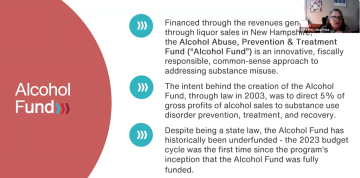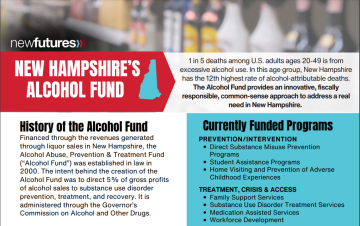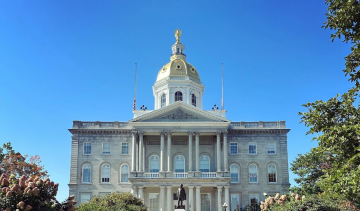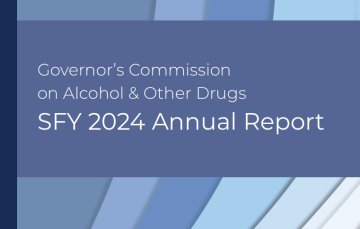
Financed through the revenues generated by liquor sales in New Hampshire, the Alcohol Abuse, Prevention & Treatment Fund (“Alcohol Fund”) is an innovative, fiscally responsible, common sense approach to addressing substance misuse. The intent behind the creation of the Alcohol Fund was to direct 5% of gross profits of alcohol sales to substance use disorder prevention, treatment, and recovery.
The Alcohol Abuse Prevention and Treatment Fund ('Alcohol Fund') supports hundreds of statewide prevention, treatment, and recovery programs. It is administered through the Governor’s Commission on Alcohol and Other Drugs.
Every other year, New Hampshire lawmakers must assess state revenues and expenses to build a state budget in HB 1 and HB 2, the state budget bills. This means the state must appropriately allocate five percent of gross profits from alcohol sales to the Alcohol Fund. Despite being a state law, the Alcohol Fund has historically been underfunded - the 2023 budget cycle was the first time since the program's inception that the Alcohol Fund was fully funded at 5% of gross profits.
To ensure New Hampshire remains committed to prevention, treatment and recovery, policymakers need to:
- Utilize the Alcohol Fund for the intended purpose of supporting contracted prevention, treatment, and recovery programs
- Continue to fund the Alcohol Fund at 5% of liquor gross profits ($10.7 million) in 2026 and 2027.
Take Action
Tell Us About Your Organization
Spread the Word
Status
The final budget package, which was signed into law by Governor Ayotte on June 28, includes $9.5 million per year for the Alcohol Fund (a cut of about $1.2 million per year).
More concerningly, the budget funds the Alcohol Fund with general funds (taxpayer money) rather than using five percent from the sale of liquor from the state-owned liquor
stores. This puts the future of the Alcohol Fund in jeopardy for future budget years.






